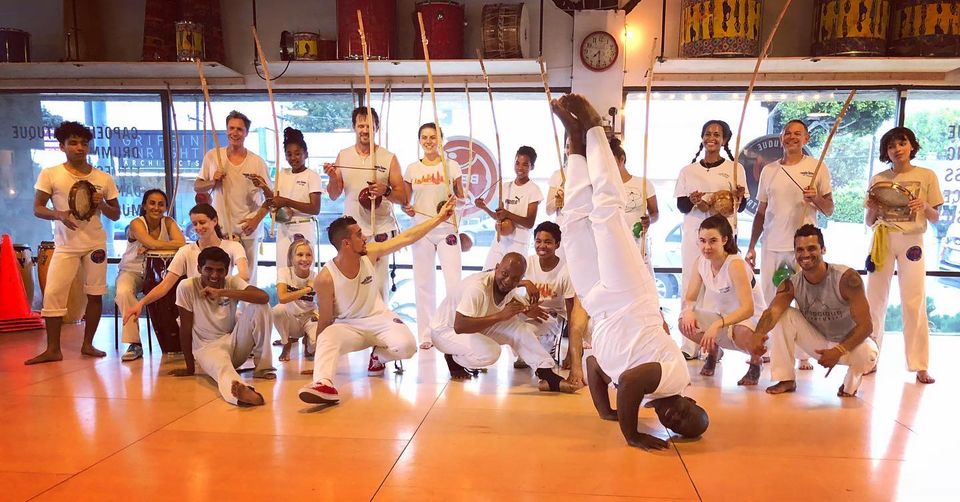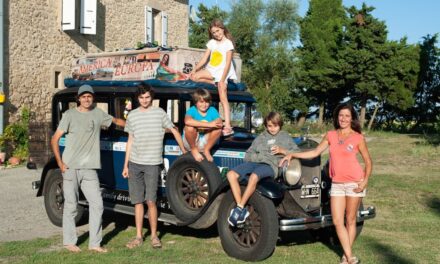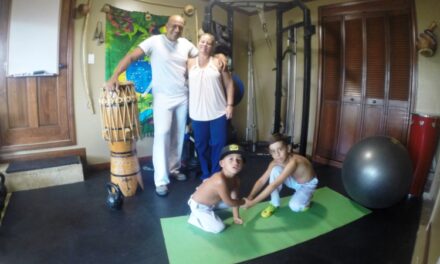By Mayora Hiromura Hiney
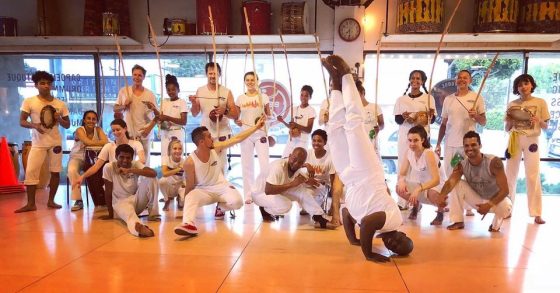 Many immigrants to the United States have a similar story of a childhood filled with economic struggles, racism and violence. What sets Joselito “Mestre Amen” Do Espirito Santo apart from others is what he has done with his natural talents and abilities. From simple beginnings, he can count among his life successes so much more than he could have ever imagined as a child in his first capoeira classes.
Many immigrants to the United States have a similar story of a childhood filled with economic struggles, racism and violence. What sets Joselito “Mestre Amen” Do Espirito Santo apart from others is what he has done with his natural talents and abilities. From simple beginnings, he can count among his life successes so much more than he could have ever imagined as a child in his first capoeira classes.
“Amen,” a nickname that was inadvertently given to him by Emilia Biancardi when he went to audition for Viva Bahia and she was so taken by the grand spiritual name he was given by his parents that she exclaimed, “Amen” when he announced himself. The name stuck. Emerging as an artistic voice within the community by the time he was a teenager, he was highly influenced by his legendary teachers like Biancardi, Mestre Waldemar, and Mestre Avila. Among the most significant achievements resulting from his dedication to the preservation and development of Afro-Brazilian arts and culture has been the fact that it afforded him the opportunity and honor to be involved in the highest caliber expressions of these arts.
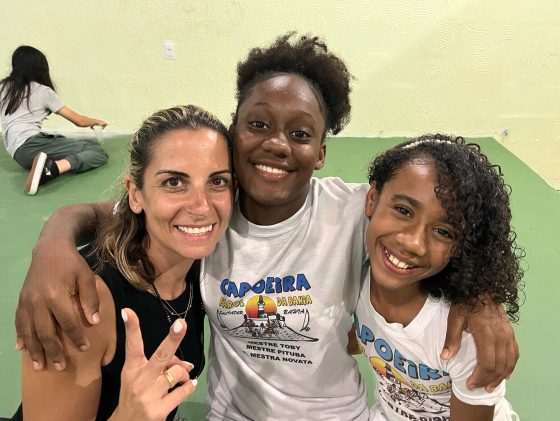 Reaching up to 50,000 children annually through residencies, assemblies and workshops in Los Angeles, teaching university level classes in capoeira and Afro-Brazilian dance as a Professor at UCLA in the Theater Department, and master teaching at capoeira schools and academies and around the world, Mestre Amen has the ability to address issues of cultural resistance, tolerance, unity and diversity.
Reaching up to 50,000 children annually through residencies, assemblies and workshops in Los Angeles, teaching university level classes in capoeira and Afro-Brazilian dance as a Professor at UCLA in the Theater Department, and master teaching at capoeira schools and academies and around the world, Mestre Amen has the ability to address issues of cultural resistance, tolerance, unity and diversity.
The Brasil Brasil Cultural Center (BBCC) and Capoeira Batuque are proudly celebrating their 20th year as a part of the Los Angeles community. Founded by “Mestre Amen” in 1989, the BBCC, home of Capoeira Batuque (the longest standing capoeira academy in California) and Ballet Folclòrico Do Brasil (dance company), have influenced the Southern California cultural landscape with the history and richness of Afro-Brazilian culture. Through classes, workshops, performances and events, the arts of capoeira, maculêlê, samba, Afro-Brazilian dance and music have been expressed with Mestre Amen’s extraordinary insight about how these art forms relate across cultural boundaries and have the power to unite.
When you visit BBCC and attend a class at Capoeira Batuque you see evidence of his view in the high degree of diversity within the ranks of capoeiristas. He relates that it “happened in an organic way.” His vision was to have a center that would promote Afro-Brazilian culture. When he began it 20 years ago it was a tiny, five or six hundred square foot space with six students taking classes and he thought it could be “a space where we could bring people together in a respectful way – promoting diversity instead of segregation.”
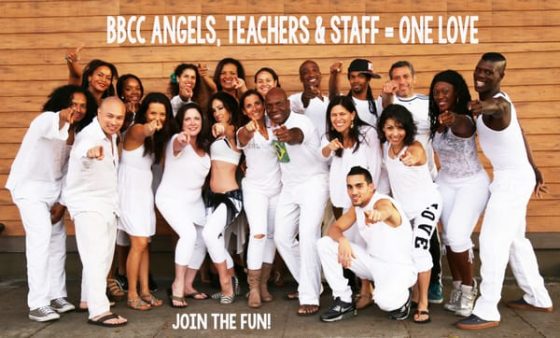 In his work in the Los Angeles community and the workshops he participates in around the world he continues to see proof of the complexity of capoeira in its subtle way of recognizing different points of view but that the players still relate to each other within the artform. When working with both groups of children and adults he sees tolerance and respect flourishing and barriers being broken down. For Mestre Amen, this is “so important and very gratifying.” From his perspective, these art forms have much more to offer those who are touched by it than a simple lesson in cross-cultural experience. Congratulations for 20 years of dedication, perseverance and belief in his vision. www.capoeirabatuque.org
In his work in the Los Angeles community and the workshops he participates in around the world he continues to see proof of the complexity of capoeira in its subtle way of recognizing different points of view but that the players still relate to each other within the artform. When working with both groups of children and adults he sees tolerance and respect flourishing and barriers being broken down. For Mestre Amen, this is “so important and very gratifying.” From his perspective, these art forms have much more to offer those who are touched by it than a simple lesson in cross-cultural experience. Congratulations for 20 years of dedication, perseverance and belief in his vision. www.capoeirabatuque.org

